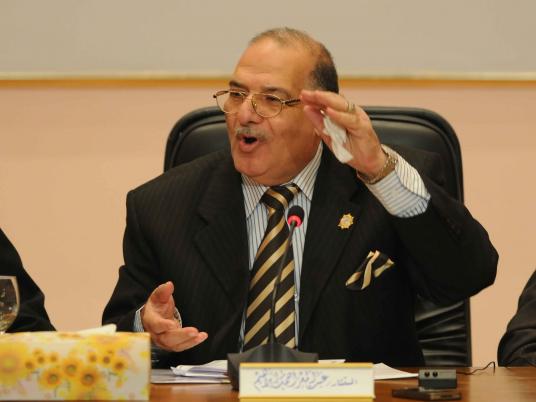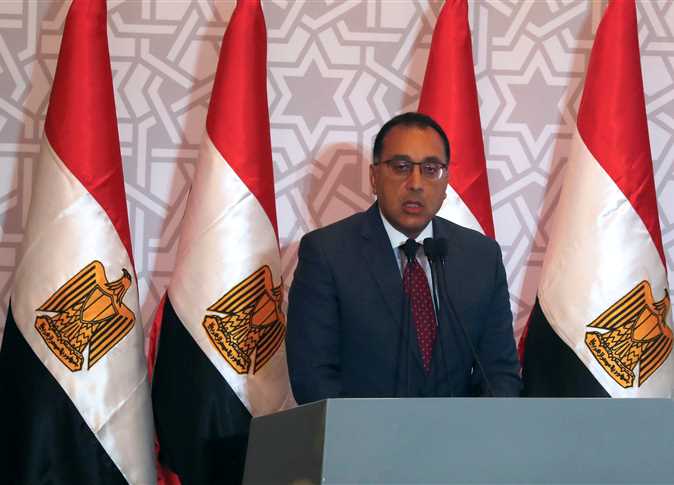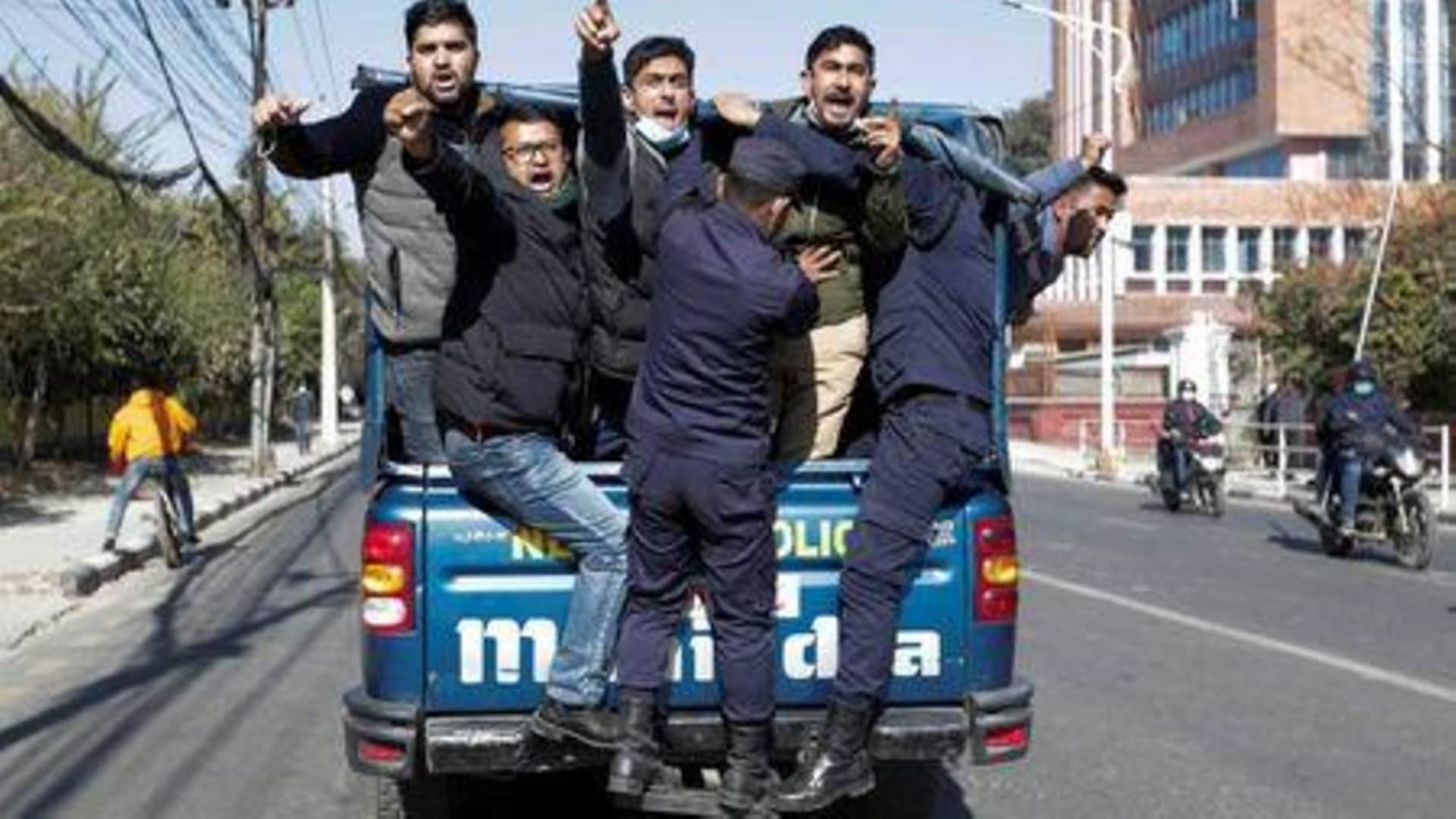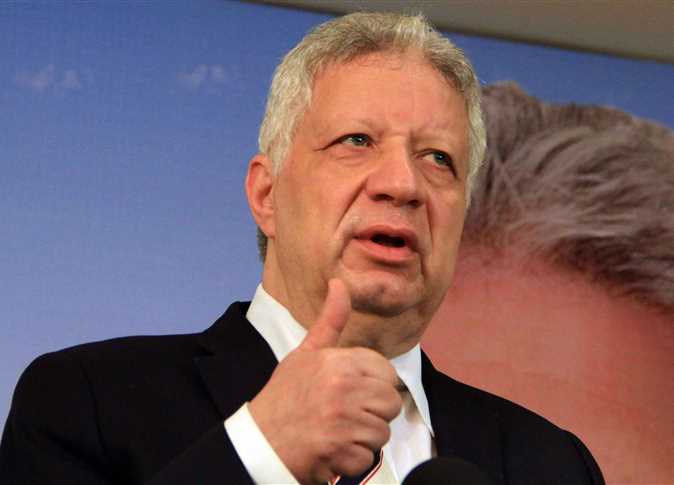
Mohamed Abdel Dayem didn't seem to mind the huge gun pointing directly at his head.
“People won’t notice,” he shrugged. Amazingly, he seemed to be right. The leader of the Nasserist Party’s Assiut chapter smiled proudly as his colleagues gathered round to admire his campaign banner, which he claimed to have designed himself.
The work was undeniably striking: In one corner of the banner was a headshot of former President Gamal Abdel Nasser, and in the other, Abdel Dayem’s giant, smirking visage.
In between the two floated the Nasserist campaign symbol — a handgun aimed, literally, at the head of the party.
“That’s a really nice poster,” one of Abdel Dayem’s colleagues said.
Seeking final approval for his party’s campaign poster, Abdel Dayem was one of many candidates who frequented the halls of the High Elections Commission (HEC) in the run up to the parliamentary elections.
Al-Masry Al-Youm's visit took place shortly before the elections started on 28 November, at a time when many Egyptians feared that the electoral process would be marred by violence and procedural irregularities.
Now, it seems that so far the elections have gone fairly smoothly. The HEC, the body responsible for overseeing them, has pulled it off, but only after a constant influx of applications, inquiries and — at least during Al-Masry Al-Youm's visit — a lot of complaints.
Mokhtar Abdel Mohsen, a lawyer who said he represented the interests of several independent candidates, had visited to the HEC to address what he believed to be a gross violation of his clients’ rights.
“There is a large number of candidates who did not respect the rules of this election and began campaigning before they were officially allowed to do so,” Abdel Mohsen stated. He said those left in the dust were typically candidates who lacked sufficient finances or sway to disregard the HEC’s rules.
He said a final, comprehensive list of eligible candidates and their symbols has yet to be published, indicating a lack of transparency — one of many reasons why Abdel Mohsen had decided to call for a two-week postponement of the elections.
Likewise, Heba Mohsen also found a place in the HEC’s crowded reception area, where she eagerly waited for a chance to present her case to the committee.
Mohsen's parliamentary ambitions were threatened when she discovered that the commission had rejected her application for candidacy in the Shura Council elections, scheduled to take place at the end of January, even though her application had previously been accepted.
The problem was her age. Mohsen will turn 35 — the minimum age required for Shura Council candidates — a few days before the election results are set to be announced.
After explaining her situation, the HEC assured her of her eligibility. But a few days later she found her papers had not been processed, due to her being "underage."
"There is no clear set of instructions regarding the participation of candidates in the electoral process," Mohsen said. "There should be one document, one straightforward list dictating this whole process — the restrictions, the things candidates are allowed to do — and it should be clearly presented and easily accessible to all, including the public. As it is now, the rules are just convoluted, contradictory and constantly changing."
Mohsen has taken her case to the nation's administrative courts, but with no avail.
"If things are this confusing for the candidates, think of how difficult it must be for regular citizens," Mohsen said.
A modest headquarters taking up two apartments in a residential building that overlooks the Military Academy in Heliopolis, the HEC main office was easily overrun by the chaos that would come with any large, significant and mostly unprecedented event such as the elections. That chaos only intensified as the first day of voting loomed near.
As a measure of productivity, however, the boisterousness of the HEC headquarters appeared to be misleading. After being told to sit and wait by an elderly office employee, who asked for neither purpose of visit nor identification, Al-Masry Al-Youm was informed that “none of the officials show up before 7 or 8 pm anyway.”
Meanwhile, there seemed to be much noise at the HEC but little in the way of dialogue, efficiency or order. Outraged candidates complained that some of their rivals had been campaigning under three or four symbols, and confused candidates inquired as to why they had been given three or four symbols to use in their campaign. Lawyers called for the postponement of the elections, and others voiced dissatisfaction with the stages into which the process has been divided.
A simple request by this reporter for a list of party symbols was met with a three-hour comedy routine in which the list was found and lost at least twice, given to a stranger, revealed to be outdated, and finally deemed mostly useless when it couldn’t be photocopied due to being printed on a sheet of paper much larger than any of the HEC’s copiers.
These absurdities are in no way limited to the HEC’s inner workings. Back in the waiting area, the amount of candidates and representatives with complaints to make had noticeably increased, including the likes of Osama Heidar, who was neither a candidate nor a representative of one, yet had arrived at the HEC to voice his objection to the electoral symbols, which he found “tasteless.”
“One of the men campaigning in my district was given an evening dress as a symbol, while a female candidate was assigned a carrot,” he said, lowering his voice to a whisper. “Of course you agree that this is highly inappropriate.”
Toward the end of the evening, Mokhtar Abdel Mohsen — still waiting for an audience with the committee — revealed: “This is all just part of the HEC’s plan.”
“They want the process to be confusing and complicated,” he said. “This is why the HEC comes up with rules like this, so that the elections will fail and they won’t be held accountable.”
Abdel Mohsen had no clear answer when asked why the HEC would imagine that such a strategy would clear it of any responsibility should the elections fail. He remained determined, however, that failure is not an option, which is why he believed it “imperative” that the elections be postponed.
“Do you think we’re ready, as a country?” he asked.
Apparently, the majority of voters disagreed. Elections went ahead as scheduled, with voter turnout at over 60 percent, despite the chaos in the office where the elections were planned.




